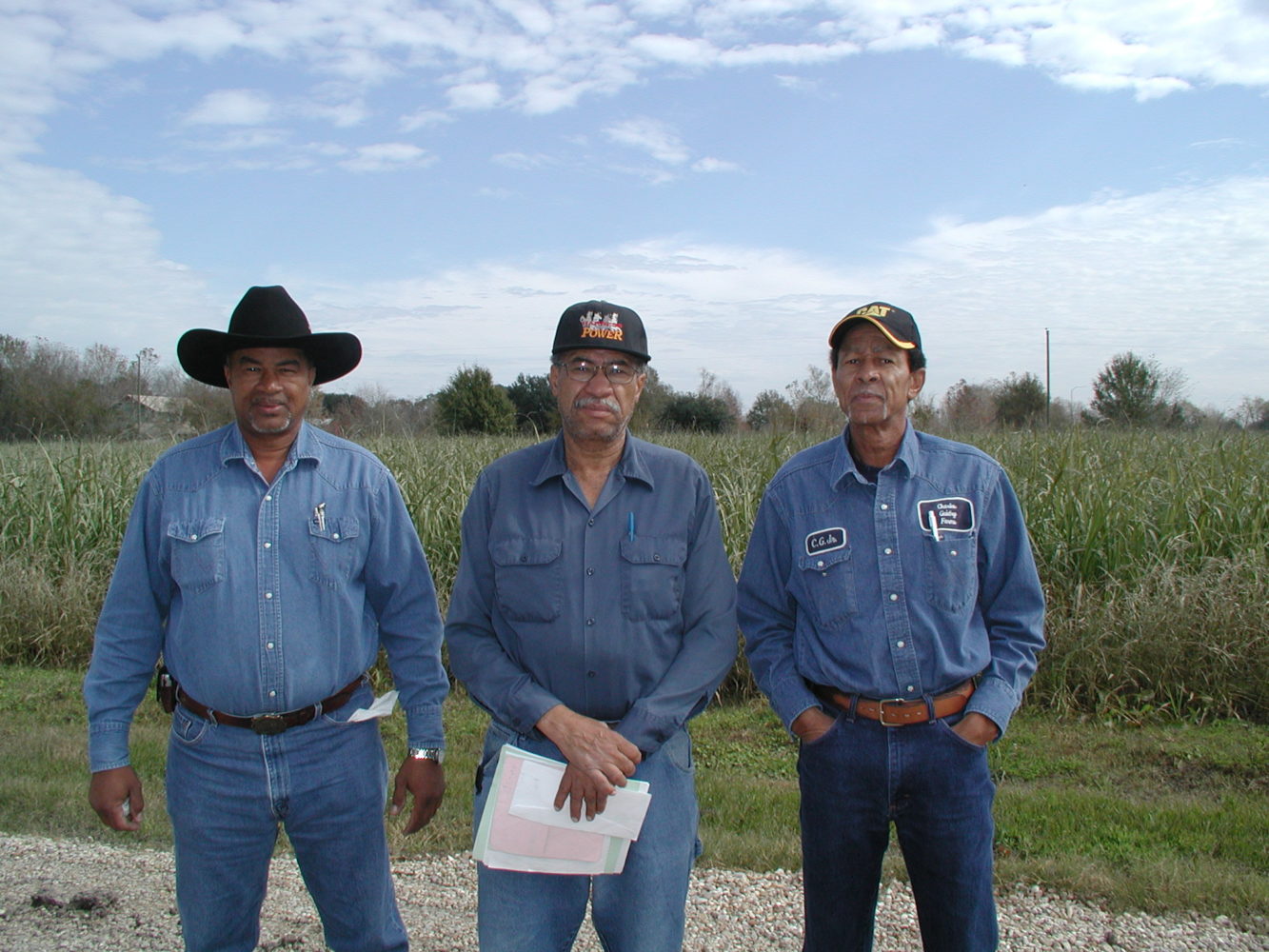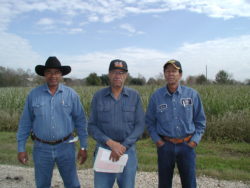Lexicon
Do Creoles Speak Creole?
Another look at language and identity
Published: December 1, 2019
Last Updated: March 2, 2020

Thomas A. Klingler
Charles Guidry of Vermilion Parish (center), a self-identified Creole, with his brothers.
The historical evolution of Creole as an ethnic identifier has been treated in depth by scholars; to summarize briefly, during the colonial period the term was used to refer people who were born in Louisiana but whose origins lay elsewhere—Africa in the case of enslaved people and Europe in the case of colonists. It did not imply membership in a particular racial group. After the Civil War, however, the term increasingly came to be understood as implying some degree of African ancestry, and today it is most commonly—though not exclusively—used as an identity label by African Americans and people of mixed African and European ancestry who consider themselves to share in Louisiana’s francophone heritage.
At the same time, the term “Creole” has been used at least since the late eighteenth century to refer to a language created through contact between Africans and Europeans on Louisiana’s plantations; it first appears as Criollo in a Spanish-language document from 1792. (Linguists use “creole” as a general term for languages created through contact between speakers of different tongues, most often in a context of colonization.) While this language shares many features with Louisiana (“Cajun”) French, it is nevertheless distinct from it and has much in common with the other French creoles of the world, such as those spoken in Haiti, Martinique, Guadeloupe, and Mauritius, for example.
Like Cajuns, francophone Creoles often call what they speak “Creole” because that is also how they identify themselves. In some cases this is, linguistically speaking, the Louisiana Creole language as described above, but often it is the same French spoken by their Cajun neighbors. (Further complicating matters, Louisiana Creole is also spoken by some white people in places like Pointe Coupee and St. Martin Parishes.) Language and culture activist Christophe Landry has proposed the name “Kouri-vini” for this creole language of Louisiana, since it was once a common label in the Bayou Teche region and has the advantage of avoiding the ambiguity of the word “Creole.” Linguists, however, more often use the term “Louisiana Creole,” which has a long history in the linguistic literature and underlines the language’s affinity with the French creoles spoken in former (and current) French possessions in the Caribbean and the Indian Ocean.
Tempting though it may be to reduce the relationship between language and ethnicity in francophone Louisiana to the simple, symmetrical idea that Cajuns speak Cajun and Creoles speak Creole, a look below the surface reveals a far more complex and nuanced state of affairs.
Thomas A. Klingler is Richard V. and Seola Arnaud Edwards Associate Professor of French at Tulane University, where he teaches courses in French and linguistics. He is the author of If I Could Turn My Tongue Like That: The Creole Language of Pointe Coupee Parish, Louisiana and co-editor of the Dictionary of Louisiana French: As Spoken in Cajun, Creole, and American Indian Communities.
